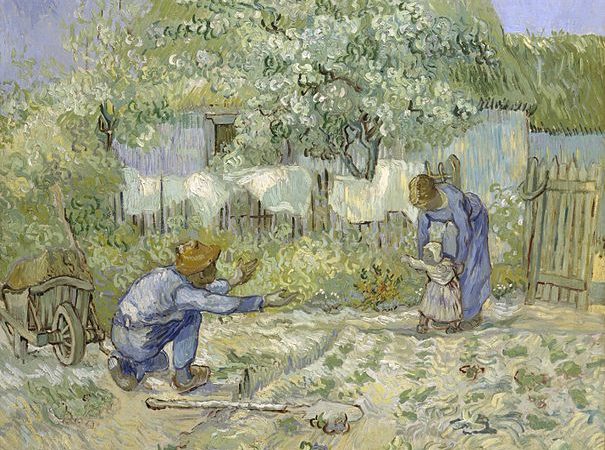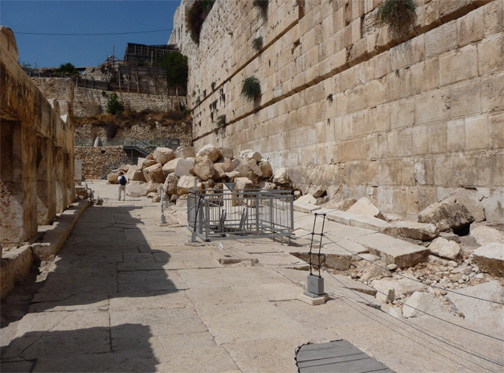
Do We Have the Poor with Us?
I want to pause one more day to reflect with you on the story of the woman who anointed Jesus with expensive perfume. In yesterday’s Life for Leaders devotion I focused on the costly sacrifice of the woman who anointed Jesus with such expensive perfume. Today, I want to draw our attention to something Jesus said in response to this generous act.
Read Article
Giving the Lord Your Very Best
Some who observed the anointing of Jesus by the woman objected that this was a huge waste of money. Had the jar been sold, it would have brought in a large sum to care for the poor (14:4-5). But Jesus defended the woman’s actions. Her sacrifice for him was costly indeed and absolutely appropriate. Not only was she expressing her deep love for Jesus, but, unknowingly, she was also preparing him for his burial (14:6-9).
Read Article
Parable of the Sower: Weeding Out Distractions
In Jesus’ explanation of today’s text, he cites “the cares of the world, and the lure of wealth, and the desire for other things” (Mark 4:19) as impediments that keep us from attending to our leadership vocation. It’s easy to hear these as bad, perhaps even immoral, diversions. No doubt, morally compromising temptations exist in every leadership setting. But, I’m not sure that’s all that Jesus meant.
Read Article
Be Watchful at Work
At the end of Mark 13, after revealing key elements of the future, Jesus tells his disciples: “What I say to you, I say to everyone: ‘Watch!’” (13:37). What does this mean for us? What happens when we watch? And how might this be relevant to our daily lives, including our work?
Read Article
The Shocking Truth of Jesus’s Humanity
I was deeply troubled by Jesus’s startling admission that he did not know the exact timetable for the end times. How could this be possible for the Son of God?
Read Article
The Holy Spirit will Guide You as You Speak
Mark 13 is sometimes called “The Olivet Discourse” because Jesus delivered it on the Mount of Olives (13:3). Others call this chapter Jesus’s “Apocalyptic Discourse” or “Little Apocalypse” because it reveals what will happen in the end times. (The word “apocalyptic” comes from a Greek word that means, “uncovered” or “revealed.”)
Read Article
A Solemn and Freeing Reminder of the Transitory Nature of Our Work
Several years ago I had the opportunity to travel to Jerusalem. Of course I visited the Temple Mount, where once stood the stunning temple of the God of Israel. Today, the Temple is no longer. The Romans destroyed it in the first century A.D. The giant stones, from which the ancient Temple and its Western Wall were built, were thrown down from the top of the mount. It was sobering to visit this site and to see some of those stones, still lying randomly on the ground alongside part of the ancient wall.
Read Article
The Widow’s What?
I remember as a young boy hearing this story of Jesus called “The Widow’s Mite.” That title perplexed me. I knew that a mite was a very, very small bug, something like a tick, something to be avoided at all costs. Thus, I didn’t understand why adults called the story of a woman putting a couple of coins in the collection box “The Widow’s Mite.” Only later in life did I figure out that “mite” also means “a little bit.” The widow didn’t throw a tiny bug in the offering plate. She gave a little bit, a mite, if you will.
Read Article
It’s Not About You!
I’ll never forget reading the first lines of The Purpose-Driven Life: “IT’S NOT ABOUT YOU. The purpose of your life is far greater than your own personal fulfillment, your peace of mind, or even your happiness. It’s far greater than your family, your career, or even your wildest dreams and ambitions. If you want to know why you were placed on this planet, you must begin with God. You were born by his purpose and for his purpose.”
Read Article
Loving God Completely at Work: By Loving Your Neighbor (Part 2)
I’m sure Valentine’s Day is celebrated in many workplaces, in one-way or another. This can be quite fun, I’m sure, though I expect it could get messy, too. But, I don’t think giving cards, flowers, and candy quite gets what it means for us to love our neighbors as ourselves at work. If we are going to express our love of God by loving the neighbors in our workplaces, we need to do more than is traditional on Valentine’s Day.
Read Article
Loving God Completely at Work: By Loving Your Neighbor (Part 1)
When Jesus was asked by a Jewish theologian which was the greatest commandment of all, he began by quoting a crucial passage from the Jewish law: “‘Hear, O Israel: The Lord our God, the Lord is one. Love the Lord your God with all your heart and with all your soul and with all your mind and with all your strength.’” (Mark 12:29-30, based on Deuteronomy 6:4-5).
But then Jesus added something unexpected, something extra, but not really extra at all.
Read Article
Parable of the Sower: Going Deep in an Age of Appearances
Seeds need three conditions to grow: light, nutrients and water. In Jesus’ Parable of the Sower, there are plenty of seeds and more than enough sunlight. In today’s text, the question is whether there is sufficient soil and adequate moisture for the seed to flourish. And, soil and moisture seem to be interrelated.
Read Article
Loving God Completely at Work: With All Your Strength (Part 2)
Yesterday, we began to consider how we can love God with all of our strength in our daily work. We were reminded that God created our bodies – gave us strength – so that we might work. When we offer our bodies to God through our work, he is worshiped and loved.
Read Article
Loving God Completely at Work: With All Your Strength (Part 1)
In my last few Life for Leaders devotions, I’ve been working with you on how we can love God at work with all of our heart, soul, and mind. Today, we get to the last of the four aspects of love for God. According to Jesus, who quotes from Deuteronomy 6:5, we are to love God with all of our “strength.” We are to do this in every part of life, including our daily work.
Read Article
Loving God Completely at Work: With All Your Mind (Part 2)
In yesterday’s Life for Leaders devotion, we began considering the call of Jesus to love God “with all our mind.” We love God, not only through our choices, actions, and feelings, but also through our thoughts. We do this, in part, by thinking about God, considering his excellence, meditating upon his beauty, considering his justice, and concentrating on his truth. In light of this truth, we learn to think in ways that honor God wherever we are, including our workplace.
Read Article